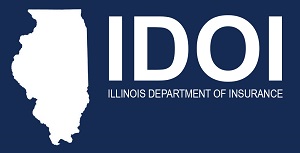Do you own a home in Illinois? Here’s what you need to know about insurance laws

The following is a paid advertisement.
Are you an Illinois homeowner? If so, it’s important that you know the laws which ensure your investment is taken care of. Although it might not be the most exciting topic, understanding laws surrounding homeowners insurane is super important. They help protect your home and wallet from life’s unexpected surprises. In this article, we’ll break down the essentials, so you can make sure you’ve got the right coverage for your needs.
Is Homeowners Insurance Required?
While no law directly requires homeowners insurance in Illinois, if you’ve got a mortgage, your lender probably does. This is because lenders want to protect their investment in your property. Even if you’ve already paid off your mortgage or you own your home outright, it’s still a good idea to have insurance to protect your financial future.
What Coverage Should You Have?
Homeowners insurance usually covers four key areas: your home itself (dwelling), your belongings (personal property), legal liability, and additional living expenses. Coverage levels can vary based on your situation, but here’s a general guide for Illinois homeowners:
- Dwelling Coverage: This covers the cost to repair or rebuild your home if it’s damaged by things like fire, windstorms, or hail. Since Illinois can experience some wild weather (hello, tornadoes!), it’s a good idea to have enough coverage to completely rebuild your home if necessary.
- Personal Property Coverage: This helps replace your stuff – think furniture, electronics, clothing – if it’s damaged or stolen. Aim for coverage equal to at least 50% of your dwelling coverage limit.
- Liability Coverage: If someone gets hurt on your property or you accidentally damage someone else’s property, liability coverage has your back. In Illinois, it’s wise to have at least $100,000 in liability coverage, but you might want to consider going higher for extra protection.
- Additional Living Expenses (ALE) Coverage: If your home becomes unlivable due to a covered loss (like a fire), ALE coverage helps pay for things like hotel bills and meals while your home is being fixed. Try to get coverage equal to at least 20% of your dwelling coverage limit.
What About Floods and Earthquakes?
Standard homeowners insurance policies don’t cover flood and earthquake damage in Illinois. To protect your home from these natural disasters, you may need to purchase separate policies. The National Flood Insurance Program (NFIP) offers flood insurance for homeowners in participating communities, while earthquake insurance can be found through private insurers.
How Do Deductibles Work?
In Illinois, homeowners insurance policies typically have deductibles. This is the amount you have to pay out-of-pocket before your insurance starts helping out. Choosing a higher deductible can lower your insurance premium, but it also means you’ll be on the hook for more of the cost if you file a claim.
Consumer Protections for Illinois Homeowners
The Illinois Department of Insurance (IDOI) is on your side, making sure insurance companies play fair. Here are some of the protections they offer:
- Fast Claims Handling: Insurance companies in Illinois have to acknowledge and process claims within specific timeframes. They must acknowledge your claim within 15 days and decide whether to pay within 30 days after receiving all the required documentation.
- Cancellation and Non-Renewal Rules: Insurance companies can’t just cancel or refuse to renew your policy for no reason. They have to follow strict guidelines and give you written notice at least 45 days before your policy expires if they don’t plan to renew it.
- Policy Cancellation Notice: If your insurer cancels your policy due to non-payment, they must give you at least 10 days written notice. For other reasons (like fraud), they must provide at least 30 days notice.
- Mediation Program: If you and your insurance company can’t agree on a claim, the Illinois Department of Insurance offers a mediation program to help you work things out. This voluntary program provides a neutral mediator to help both parties find a solution that works for everyone.
- Clear Policy Language: Your homeowners insurance policy should be easy to understand. Illinois law requires insurance companies to write policies in clear language and provide a summary that explains coverage, exclusions, and other key details in a simple format.
- Timely Refunds: If you or your insurance company cancels your policy for any reason other than non-payment of premiums, the insurer must refund any unearned premiums within 30 days of the cancellation date.
Understanding Illinois insurance laws is essential for protecting your home and finances. Make sure you’ve got the right coverage, consider additional policies for flood and earthquake protection, and remember that the Illinois Department of Insurance is there to help if you need it. Stay informed and keep your home and financial future secure, no matter what life throws your way.
Miss Clipping Out Stories to Save for Later?
Click the Purchase Story button below to order a print of this story. We will print it for you on matte photo paper to keep forever.

